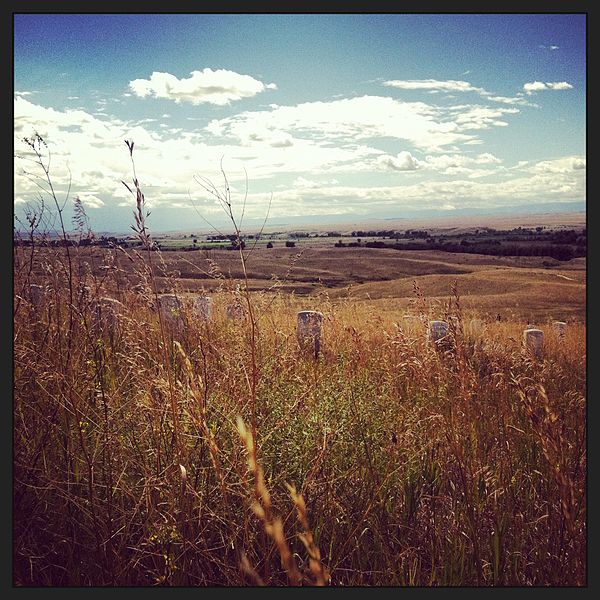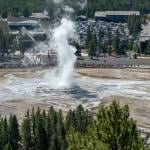
(Wikimedia Commons photo by Bailey P. Baldwin)
Lieutenant Colonel George Armstrong Custer probably got what he deserved, but American Indians have continued to suffer at the hands of their European conquerors ever since.
Somebody has finally had the nerve to tell the truth, publicly, about the situation on American Indian reservations:
http://www.nationalreview.com/article/439686/locked-disgraceful-state-indian-country
I’m very far from an authority on the topic, but here are two personal notes:
1.
Soon after I joined the faculty at BYU, I delivered a paper at the annual meeting of the Rocky Mountain Medieval and Renaissance Association, which was held that year on the south rim of the Grand Canyon. (Candidly, that’s one of the reasons that I wanted to present at the meeting. Location, location, location!)
One day, at lunch in the facility’s restaurant, I fell into conversation with a youngish man who there for another meeting. He explained that he had come to northern Arizona, fired with idealism, to teach in a school among the Indians and to make a contribution. (As the conversation went on, incidentally, I discovered that he was a Latter-day Saint.) But then he began to tell me tales of rampant alcoholism, neglectful and sometimes abusive parents, and a dysfunctional society that (on the whole) wasn’t supportive of academic success to even the most minimal degree. It was profoundly depressing. And he was depressed, clearly. Exhausted. Hopeless. I couldn’t tell you his name now, and I don’t remember what he looked like, but I’ve never forgotten the dismal content of what he had to say.
2.
Also very long ago, I remember reading an article in the Wall Street Journal about a group of Indians — from, I believe, the Catawba Nation of South Carolina — who were opposed to their people’s building a casino. These were Latter-day Saints, and they feared the corrupting effect that windfall casino profits might have on the character and work ethic of their youth.
I looked for that article just now, and could not find it. I did, alas, find evidence that the Catawba Nation now seeks to build its own casino, which will probably have precisely the effect that those LDS members of the tribe feared years ago and that is briefly discussed in the article to which I’ve linked above.
I was proud of them for their willingness to forego potentially vast profits for the sake of their children.
We have, in my judgment, done grievous harm to America’s First Nations (as Canadians call them), and, sadly, that harm didn’t cease when we stopped violating treaties with them, driving them from their lands, and massacring them.











